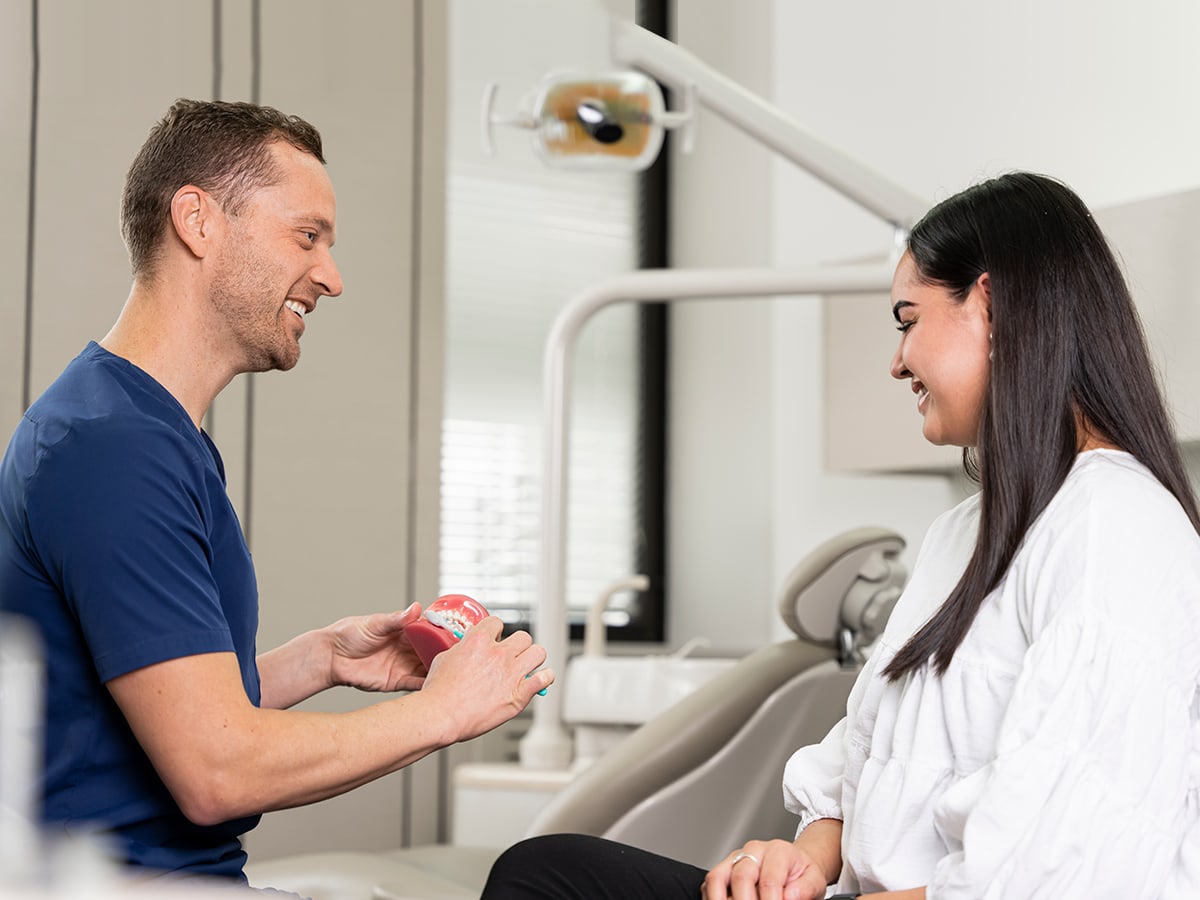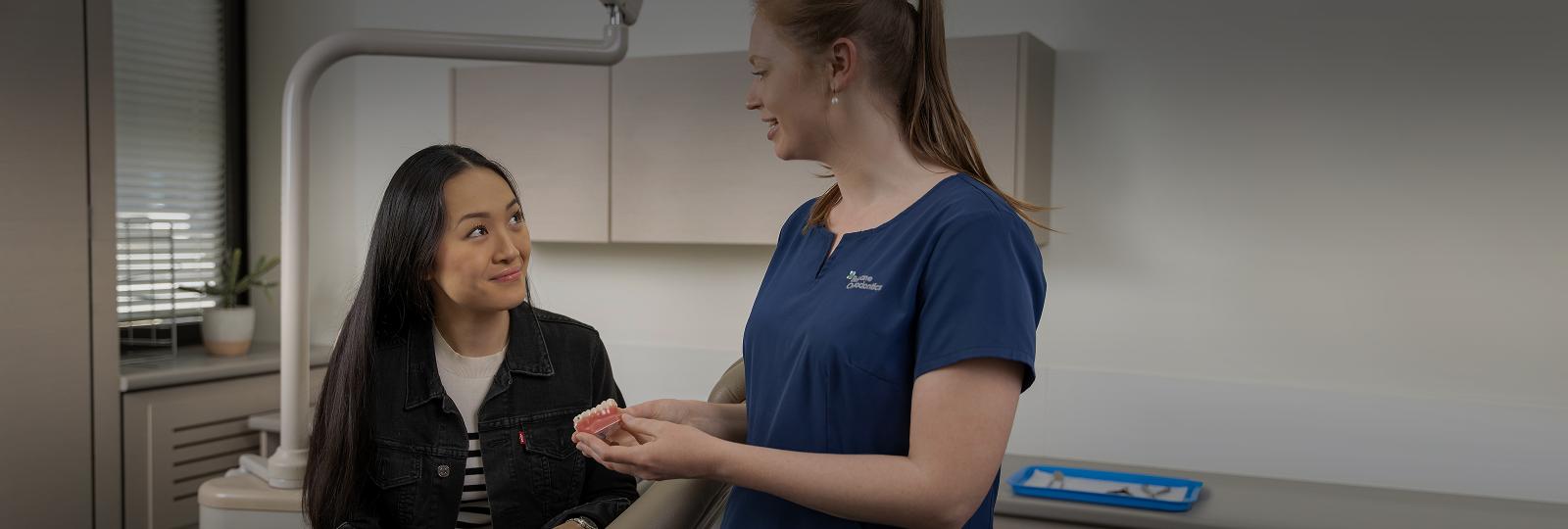
Like any new experience, Braces and Invisalign can take a little bit of getting used to. Once the settling in period is over, you will be surprised how quickly the process becomes routine. With good brushing and smart eating, there is little to go wrong.
Cleaning with Braces
Great cleaning is always important, particularly during orthodontic treatment. Regular brushing with the correct technique will avoid the risks of permanent markings, gum disease and tooth decay. These same problems can occur without orthodontic treatment but the risk is greater when wearing braces. We recommend brushing at least three times a day - immediately after each meal including lunch. It is also very important to continue with regular checkups with your general dentist throughout orthodontic treatment.
Learn more about Cleaning with Braces
Eating with Braces
For the first few days, your teeth will be a bit tender, so it is a good idea to stick to soft foods. After that, patients can return to a relatively normal diet. There are certain dietary habits that are known to cause breakage of orthodontic appliances as well as increasing the risk of dental disease. We ask all our patients in braces to avoid eating foods that are particularly hard or sticky. Our aim is to achieve the treatment goals with as few disturbances due to appliance breakage as possible and to minimise the side effects of poor diet choices. The fewer breakages you have, the quicker your treatment will go! Most of our patients get through their entire treatment with no breakages. Remember, teeth move their best in a healthy environment and in individuals with excellent overall health. Be sure you have a well-balanced diet. Remember, if you have any questions about dietary restrictions or good food choices, PLEASE ASK!
Learn more about Eating with Braces
Emergencies
True orthodontic emergencies are very rare, but when they do occur, we are available to you. As a general rule, you should call our office when you experience severe pain, break part of your appliances, or have a problem with an appliance that you can't take care of yourself. Although some discomfort is to be expected immediately after an adjustment, you should not have to suffer! You might be surprised to learn that you may be able to temporarily solve many problems by yourself. After alleviating your discomfort, it is very important that you still call our office as soon as possible to schedule an appointment to repair the problem. Allowing your appliance to remain damaged for an extended period of time may result in disruptions in your treatment plan.
